Hyundai IONIQ 6 vs Toyota RAV4 – Which model is better for everyday use?
Compare performance, boot capacity, efficiency and price at a glance.
Find out which car is the better choice for you – Hyundai IONIQ 6 or Toyota RAV4?
Costs and Efficiency:
Price and efficiency are often the first things buyers look at. Here it becomes clear which model has the long-term edge – whether at the pump, the plug, or in purchase price.
Toyota RAV4 has a hardly perceptible advantage in terms of price – it starts at 35100 £, while the Hyundai IONIQ 6 costs 37600 £. That’s a price difference of around 2494 £.
As for range, the Hyundai IONIQ 6 performs significantly better – achieving up to 614 km, about 539 km more than the Toyota RAV4.
Engine and Performance:
Power, torque and acceleration are the classic benchmarks for car enthusiasts – and here, some clear differences start to show.
When it comes to engine power, the Hyundai IONIQ 6 has a significantly edge – offering 650 HP compared to 306 HP. That’s roughly 344 HP more horsepower.
In acceleration from 0 to 100 km/h, the Hyundai IONIQ 6 is convincingly quicker – completing the sprint in 3.20 s, while the Toyota RAV4 takes 6 s. That’s about 2.80 s faster.
In terms of top speed, the Hyundai IONIQ 6 performs noticeable better – reaching 257 km/h, while the Toyota RAV4 tops out at 180 km/h. The difference is around 77 km/h.
Space and Everyday Use:
Cabin size, boot volume and payload all play a role in everyday practicality. Here, comfort and flexibility make the difference.
Both vehicles offer seating for 5 people.
In curb weight, Toyota RAV4 is slight lighter – 1745 kg compared to 1850 kg. The difference is around 105 kg.
In terms of boot space, the Toyota RAV4 offers clearly perceptible more room – 580 L compared to 401 L. That’s a difference of about 179 L.
When it comes to payload, Toyota RAV4 clearly perceptible takes the win – 600 kg compared to 430 kg. That’s a difference of about 170 kg.
Who wins the race?
The Hyundai IONIQ 6 proves to be outperforms in nearly all aspects and therefore becomes our DriveDuel Champion!
Hyundai IONIQ 6 is the better all-rounder in this comparison.
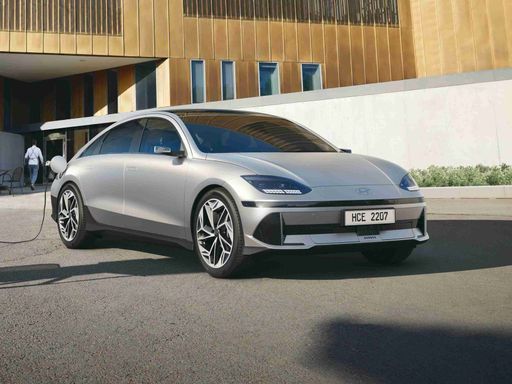 @ hyundai.news
@ hyundai.news
Hyundai IONIQ 6
Hyundai IONIQ 6
The Hyundai IONIQ 6 merges futuristic design with eco-friendly technology, offering a glimpse into the future of electric mobility. Its sleek silhouette and aerodynamic profile are sure to capture attention on the road, while the interior provides a seamless blend of comfort and cutting-edge digital features. With a focus on efficiency and sustainability, this model represents a significant step forward in the evolution of electric vehicles.
details @ hyundai.news
@ hyundai.news
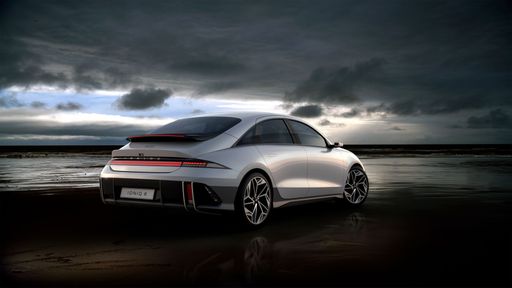 @ hyundai.news
@ hyundai.news
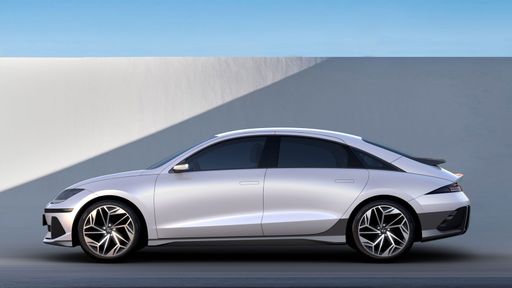 @ hyundai.news
@ hyundai.news
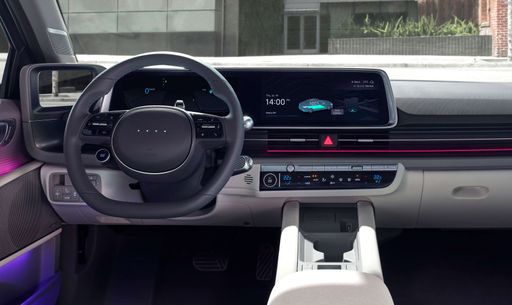 @ hyundai.news
@ hyundai.news
Toyota RAV4
The Toyota RAV4 stands out in the crowded SUV market with its distinct design, embodying a blend of robustness and style. Its cabin provides a harmonious fusion of comfort and practicality, offering plenty of space for both passengers and luggage. This vehicle is engineered to deliver a smooth driving experience, whether manoeuvring through city streets or exploring winding country roads.
details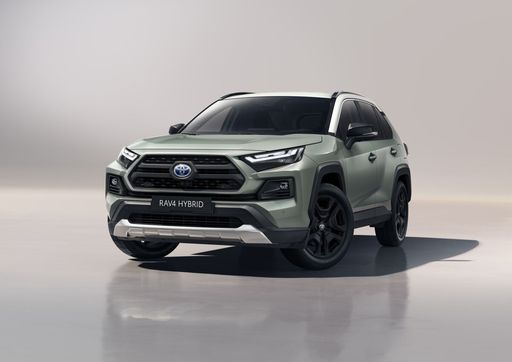 @ Toyota
@ Toyota
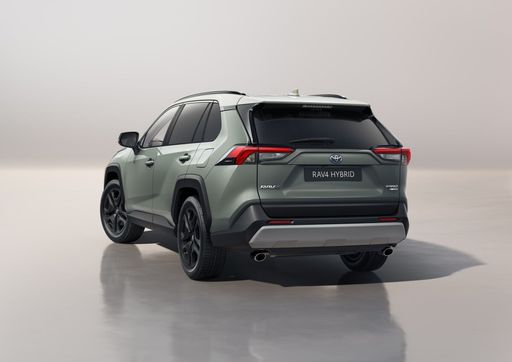 @ Toyota
@ Toyota
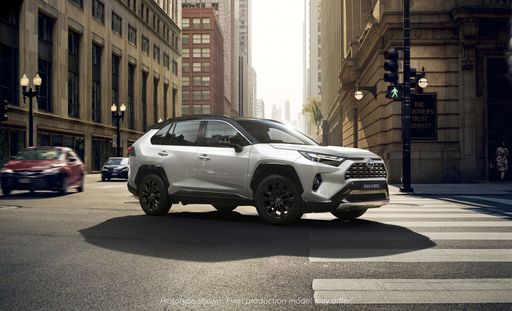 @ Toyota
@ Toyota
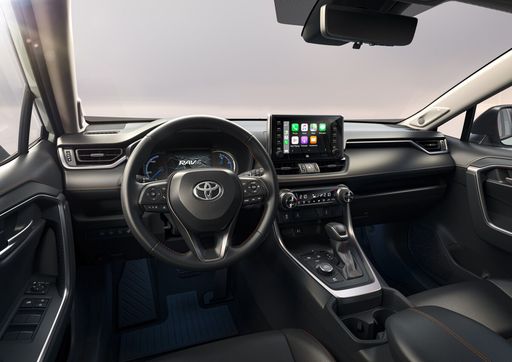 @ Toyota
@ Toyota
 @ hyundai.news
@ hyundai.news
|
 @ Toyota
@ Toyota
|
|
|
|
Costs and Consumption |
|
|---|---|
|
Price
37600 - 64300 £
|
Price
35100 - 55700 £
|
|
Consumption L/100km
-
|
Consumption L/100km
1 - 5.6 L
|
|
Consumption kWh/100km
13.9 - 15.1 kWh
|
Consumption kWh/100km
-
|
|
Electric Range
429 - 614 km
|
Electric Range
75 km
|
|
Battery Capacity
53 - 84 kWh
|
Battery Capacity
-
|
|
co2
0 g/km
|
co2
22 - 128 g/km
|
|
Fuel tank capacity
-
|
Fuel tank capacity
55 L
|
Dimensions and Body |
|
|---|---|
|
Body Type
Hatchback
|
Body Type
SUV
|
|
Seats
5
|
Seats
5
|
|
Doors
4
|
Doors
5
|
|
Curb weight
1850 - 2095 kg
|
Curb weight
1745 - 1910 kg
|
|
Trunk capacity
401 L
|
Trunk capacity
520 - 580 L
|
|
Length
4855 - 4935 mm
|
Length
4600 mm
|
|
Width
1880 - 1940 mm
|
Width
1855 mm
|
|
Height
1495 mm
|
Height
1685 mm
|
|
Max trunk capacity
-
|
Max trunk capacity
1604 - 1690 L
|
|
Payload
425 - 430 kg
|
Payload
390 - 600 kg
|
Engine and Performance |
|
|---|---|
|
Engine Type
Electric
|
Engine Type
Full Hybrid, Plugin Hybrid
|
|
Transmission
Automatic
|
Transmission
Automatic
|
|
Transmission Detail
Reduction Gearbox
|
Transmission Detail
CVT
|
|
Drive Type
Rear-Wheel Drive, All-Wheel Drive
|
Drive Type
Front-Wheel Drive, All-Wheel Drive
|
|
Power HP
151 - 650 HP
|
Power HP
218 - 306 HP
|
|
Acceleration 0-100km/h
3.2 - 8.8 s
|
Acceleration 0-100km/h
6 - 8.4 s
|
|
Max Speed
185 - 257 km/h
|
Max Speed
180 km/h
|
|
Torque
350 - 770 Nm
|
Torque
-
|
|
Number of Cylinders
-
|
Number of Cylinders
4
|
|
Power kW
111 - 478 kW
|
Power kW
160 - 225 kW
|
|
Engine capacity
-
|
Engine capacity
2487 cm3
|
General |
|
|---|---|
|
Model Year
2022 - 2025
|
Model Year
2024 - 2025
|
|
CO2 Efficiency Class
A
|
CO2 Efficiency Class
D, B
|
|
Brand
Hyundai
|
Brand
Toyota
|
What drive types are available for the Hyundai IONIQ 6?
Available configurations include Rear-Wheel Drive or All-Wheel Drive.
The prices and data displayed are estimates based on German list prices and may vary by country. This information is not legally binding.
